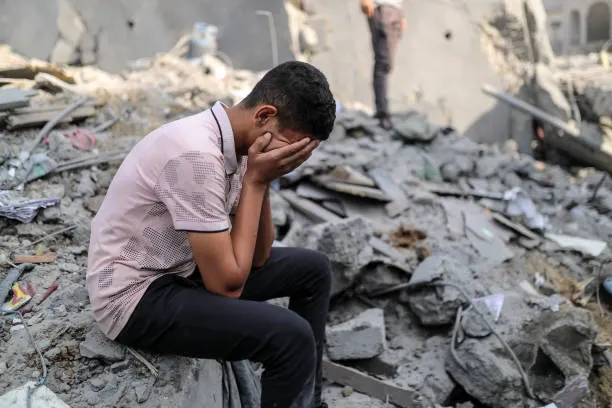The abolition of the Khilafah in 1924 marked the collapse of Islamic political unity and the rise of an era dominated by Western colonial powers. While traditional colonialism took the form of direct military control, today’s reality — especially in Africa — is shaped by neo-colonialism: the indirect rule of foreign powers through economic, political, and ideological tools.
For Muslims, especially in Africa, this dual tragedy of losing the Khilafah and living under continued Western dominance calls for deep reflection and urgent action.
The Khilafah is leadership of the global Muslim Ummah which historically ruled almost half of the globe and not the whole of it. The Islamic State was established by the Prophet Muhammad ﷺ and continued by his successors. It was not just a spiritual authority — it was a comprehensive system that implemented Islamic law, defended the Ummah, and unified diverse lands under one banner.
Africa, from Egypt to Nigeria, Tunisia to Sudan, was an integral part of the Khilafah for centuries. Islamic rule in Africa brought justice, unity, and economic prosperity, deeply rooted in the Qur’an and Sunnah.
The Ottoman Khilafah, the last Islamic authority, faced internal decay, ideological infiltration, and external aggression. Western colonial powers, particularly Britain and France, actively worked to dismantle the Caliphate from within and without.
In the 19th and early 20th centuries, nationalist movements — fueled by European ideas — began to rise. Arabs were incited against the Turks, and “modernization” was equated with secularism. By the end of World War I, the Ottoman Empire was defeated, and in 1924, Mustafa Kemal Atatürk officially abolished the Khilafah.
Simultaneously, Africa was already being carved up at the Berlin Conference of 1884, where European powers decided the fate of African lands without a single African voice. As the Islamic world lost its shield, Africa lost both its sovereignty and Islamic leadership — creating a double wound still felt to this day
The fall of the Khilafah was orchestrated by both internal traitors and foreign colonialists. In Turkey, Mustafa Kemal replaced Islamic law with secularism. Across Africa and the Middle East, Britain and France installed loyal regimes to prevent any resurgence of Islamic governance.
In Africa, colonial administrators worked to suppress Islamic movements and replace them with Western-style education, languages, and political systems. They trained a class of African elites who would later serve Western interests after “independence.”
This model of leadership — secular, nationalist, and loyal to foreign powers — mirrors the post-Khilafah reality of the Muslim world.
After the fall of the Khilafah, the Muslim world was broken into over 50 nation-states, each with its own borders, armies, and constitutions. These borders were never drawn by Muslims — they were created by colonizers to divide and weaken.
Africa, too, was cut up by colonial rulers into unnatural states, with borders that ignored tribal, ethnic, and religious realities. Nations like Nigeria, Sudan, and Mali were left with deep divisions and artificial identities. This division not only fragmented Africa but also disconnected African Muslims from the global Ummah and from each other.
Though most African countries gained formal independence in the mid-20th century, real freedom never arrived. Western powers simply replaced military control with economic dominance, political manipulation, and ideological control. This is neo-colonialism.
In this system, African leaders may wear African clothes and wave national flags, but their policies are often dictated from Paris, London, or Washington.
Muslim countries and African countries alike suffer from this modern colonialism — still ruled by the very ideologies that destroyed the Khilafah.
The Prophet ﷺ changed society through a method: he intellectually challenged the dominant falsehoods of his time, built a strong ideological group, and eventually established a state in Madinah. This method — Iis the one adopted by Hizb ut Tahrir and it remains the only way f
Whether in Africa, the Middle East, or beyond, the Muslim Ummah must unite behind one political vision: the return of Islamic governance through the Khilafah.
This is not nostalgia — it is a Fardh (obligation), and it is the only system capable of uprooting neo-colonialism and restoring justice. Allah has promised victory to those who strive for His cause:
“Indeed, Allah will support those who support Him.”
(Surah Al-Hajj 22:40)
Written by Salim Adiyo
Member of Hizb ut-Tahrir, Kenya


